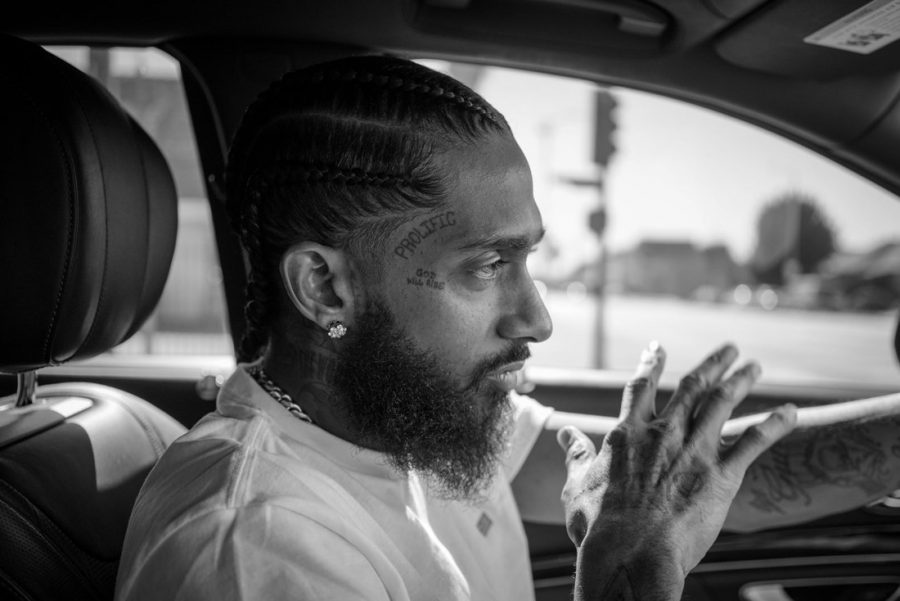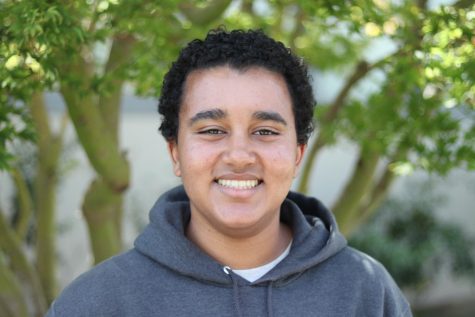Nipsey Hussle was my Eritrean American hero
April 8, 2019
As an 18 year old in the 21st century, I’ve lived through the deaths of many important figures in popular culture. From Prince to Anthony Bourdain, celebrity deaths often sting for a while, especially when I’m attached to their work. But just over a week ago, a tragedy occurred that I still cannot shake.
On March 31, Ermias Asghedom, better known as Nipsey Hussle, was shot six times and killed outside his own clothing store on the corner of Slauson and Crenshaw in South Central Los Angeles.
When I heard the news, I went numb. It was as if a friend had just passed. Never did I imagine he could have left this world so abruptly. For me, along with millions across the world, Ermias was a beacon of hope in a world that had told him he couldn’t accomplish his goals or fulfill his dreams, especially coming from the underprivileged upbringing he had. And in those first moments, I did the only thing I thought could help me cope with his death in that moment: play his music.
The day he passed, I played dozens of songs from all his projects, feeling so many different emotions: anger, heartbreak, loss, and hopelessness. I could not believe that someone who seemingly did so much good for the world could pass in such a sudden way. For Ermias to die in a shooting that was unprovoked, by a man who was just upset at him for a seemingly insignificant reason (allegedly Ermias called him out for being a snitch to the police), reminds me to just make the most of everything while I’m still alive.
What makes Ermias’s tragic passing so heartbreaking for me was because of how he represented my culture. His mother is African American and his father is an Eritrean immigrant. Throughout his life, he took time to speak about the Eritrean-Ethiopian conflict, and just last year, he went back to Eritrea. He had plans about investing back into his community, representing the flag and our people.
As a fellow Habesha (person of Eritrean and/or Ethiopian descent), seeing someone with my heritage taking an unconventional route to success that some of our parents may have not supported was powerful. He was the first one of us to make it on the world stage, before The Weeknd and Aminé. My mom told me that she was going through Ermias’s childhood pictures and was surprised that he and I had similar faces. And that struck me to my core.
His debut album, the Grammy-nominated “Victory Lap” (2018), was my first true foray into his music. I had listened to some of his previous mixtapes, such as “Crenshaw” (2013) and “The Marathon” (2010), but this one was different. From the message, the music videos, and the production, “Victory Lap” came together as a project I had right near the top of my favorites last year. Yet, right when mainstream music listeners were beginning to hear his message for the first time, he was taken from us.
However, being a rapper was nearly the least important part of his success. He utilized his opportunities and wealth he gained from music to help his South LA community. Unlike how many rappers today continue to preach yet never act on improving their neighborhoods, Ermias did just that. He hired recently incarcerated friends in his businesses. He fostered STEM opportunities for low income students and got involved in technology investments, hoping to bring the Silicon Valley to people in his own neighborhood. For every step he took in music, he took ten steps in philanthropy and business.
But, more than music and business, Ermias loved his family. He proudly took every step in his life with his longtime girlfriend Lauren London. His closest friend was his brother and business partner Samiel. Everything he did in his path to success, from music to starting a stem cell company, was to uplift those around him, and he always made sure to never leave anyone behind.
Ermias’s legacy, whether through music or entrepreneurship or community activism, must not end. I know that I will forever see him as someone who never settled. He never, to his last day, chose to neglect those he cared about.
Ermias was a man of his people, one who never shied away from being himself with his community. That is what made him so special. That is what made Nipsey the hero he was and will forever be. No matter how heart-wrenching this story is, we cannot ever forget that this marathon that he was on is still a path we all will run on together.
Rest in power Ermias.




